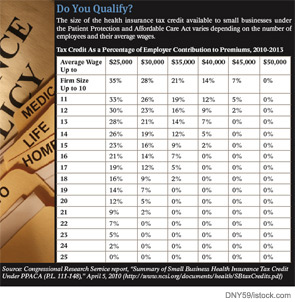When Rahul Shah, MD, then a pediatric otolaryngologist at Children’s Hospital in Boston, and several colleagues first undertook a survey of otolaryngologists’ reactions to adverse events in 2004, they provided a blank form for respondents to write about what had happened. In the more than 200 responses they received, Dr. Shah and his colleagues read an outpouring of emotion.

Promise for Recurrent Respiratory Papillomatosis: Pediatric otolaryngologists have high hopes for the HPV vaccine
Optimism is growing that a new HPV vaccine will drastically decrease the number of cases of pediatric recurrent respiratory papillomatosis (RRP), a rare but devastating disease.

Health Reform Perks: Employer tax credits could benefit your practice
By now, you’re probably well versed in the clinical aspects of the health reform bill signed by President Obama in March. But what you may not know is that the bill includes a section that could benefit otolaryngologists and other physicians in their role as employers.
The Faculty Mentor from the Resident’s Perspective
What is the experience of residents regarding mentorship during their otolaryngology residency? Background: Integral to the educational experience is the relationship between faculty and residents, which is based upon multiple types […]

Who’s Covering Your Tail? The ins and outs of professional liability insurance
Are you looking to switch medical practices? Are you in the market to purchase a professional malpractice insurance policy? Are you planning to retire soon? If you answered ‘yes’ to any of these questions, you will likely confront the concept of “tail” insurance.
Double Benefit? The case for bilateral cochlear implants
Since the advent of the cochlear implant more than 20 years ago, the devices have benefited thousands of patients. According to the U.S. Food and Drug Administration, as of April 2009, approximately 188,000 people worldwide have received cochlear implants. In the U.S., about 42,000 adults and 26,000 children have received them. Today, the fantasy of two implanted artificial cochlea is a reality.
Upholding the Legacy: Trio president urges members to make lasting contributions
Triological Society members should constantly be assessing their contributions to their profession and working to create meaningful legacies in line with the group’s traditions, said Society President Frank E. Lucente, MD, in his presidential address at the Annual Meeting of the society, part of the Combined Otolaryngology Spring Meetings held here April 28-May 2.
A Better Way to Implement EMRs: Why one-size-fits-all won’t work
I have been a strong advocate of electronic medical records (EMRs) for almost a decade. In fact, I used the phrases “It is the silver bullet for health care reform infrastructure” and “It is the cornerstone for health care reform infrastructure” to describe EMR plans when President Obama was campaigning. However, technology, like fire, can warm your house or burn it down, cook your food or kill you. Likewise, the wrong EMR will escalate inefficiency and raise health care costs. The wrong mandates or the wrong incentives have the potential to paralyze the day-to-day practice of medicine.

Digital Dilemma: Physicians oppose EHR requirements
The federal government’s proposed rule establishing incentive payments for physicians who “meaningfully use” electronic health records (EHRs) is too onerous and would discourage physicians from participating, some otolaryngologists say.

The Great Debate: Canal-wall-up vs. canal-wall-down surgery for pediatric cholesteatomas
- « Previous Page
- 1
- …
- 60
- 61
- 62
- 63
- 64
- …
- 87
- Next Page »